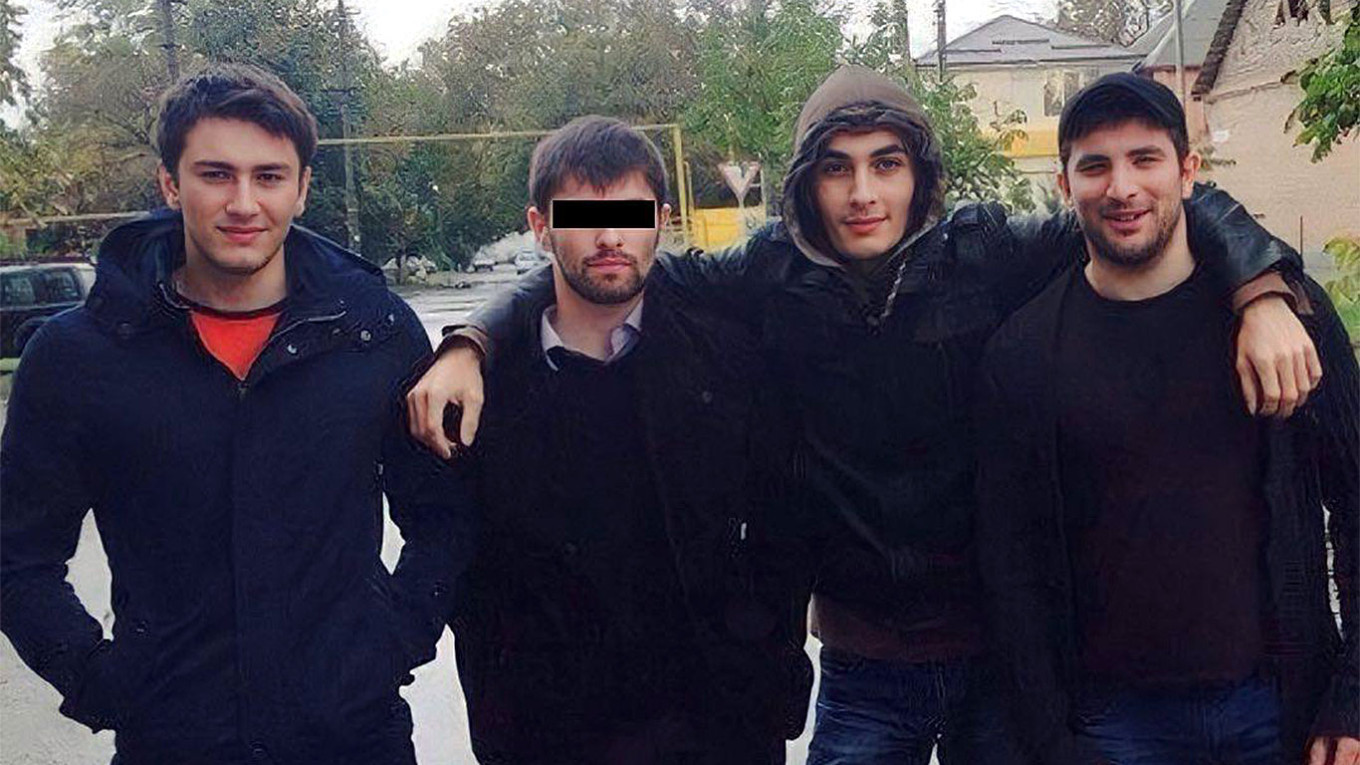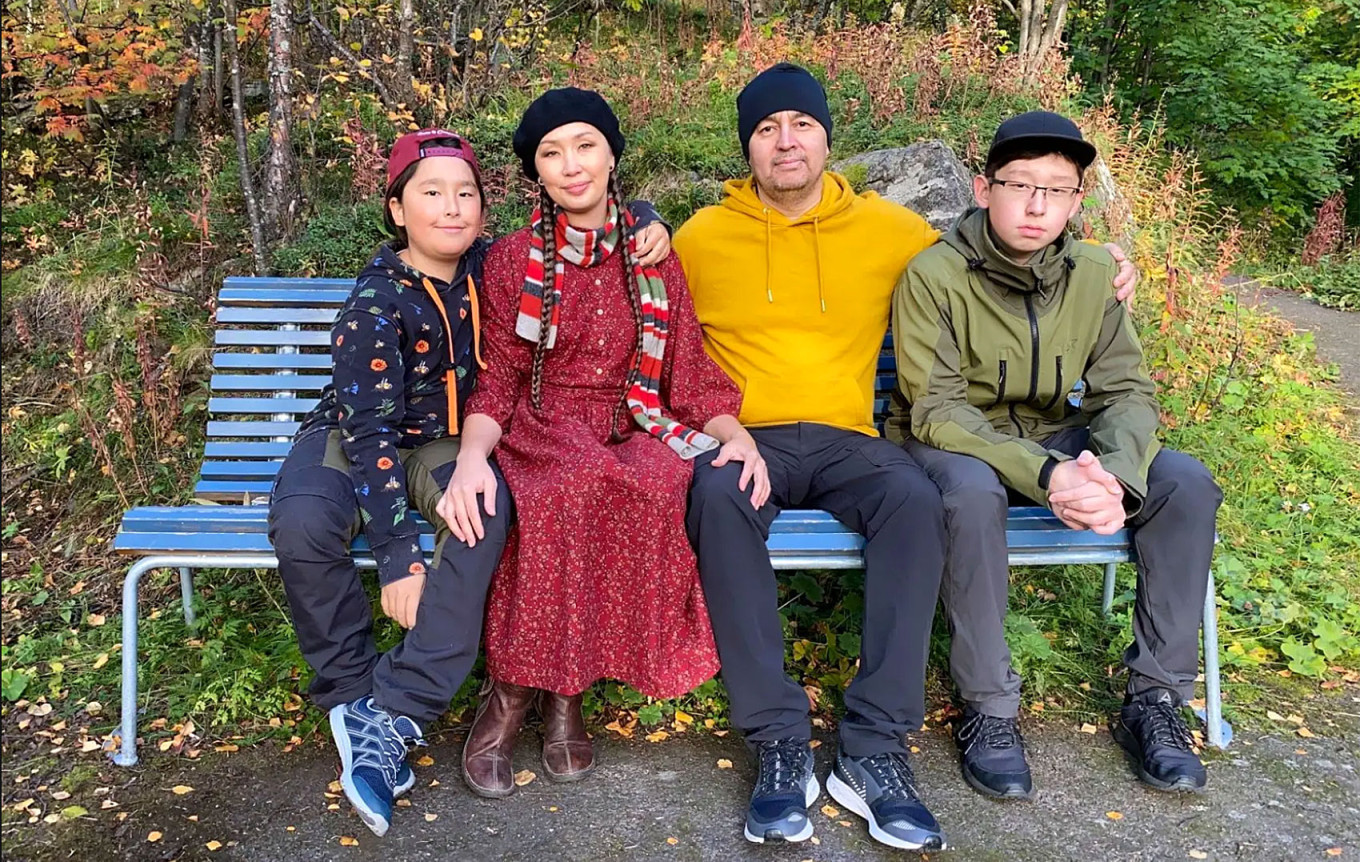“They took my relatives to the war in Ukraine.”
In an emotional Instagram post, exiled Chechen human rights lawyer Abubakar Yangulbaev said authorities in his home region had forcefully taken four of his closest male relatives to the frontlines in Ukraine’s Russian-occupied Donetsk region.
It was far from the first time Yangulbaev’s family has been targeted, he claims, as a result of his activism and criticism of Chechnya’s leadership.
In July, a Chechen court sentenced Yangulbaev’s mother to 5.5 years in prison in a move that human rights groups dubbed retaliation for the activities of Yangulbaev and his two brothers — all vocal critics of Chechen leader Ramzan Kadyrov.
“The protest against us, harassment, intimidation, persecutions, relatives renouncing us publically, taking my mother hostage and taking away our motherland — all of that wasn’t enough for the government,” Yangulbaev said in his post on Monday.
As Russia’s crackdown on dissenters has intensified, so too have the ripple effects on the family members of Kremlin critics, who are often not involved in politics themselves.
Beyond already well-publicized instances, such as the imprisonment of Yuriy Zhdanov, the father of Alexei Navalny’s aide Ivan Zhdanov, activists who spoke to The Moscow Times confirmed dozens of ongoing cases of persecution of government critics’ families.
But even some of the most vocal Kremlin critics were unwilling to go on record about the harassment faced by their loved ones, fearing it could make the situation worse for those left at home.

For years, Russian authorities have been rigorously building up the legal framework for stamping out political dissent. With the invasion of Ukraine, these efforts reached new intensity, culminating with an array of wartime censorship laws that could see virtually any critic of Russia’s aggression in Ukraine sentenced to a lengthy jail term.
Despite the availability of legal avenues for political repression, Russian authorities still frequently resort to extrajudicial methods to silence critics.
Harassment and prosecution of close family members and distant relatives have long been used to pressure anti-government activists. These tactics are often used against those who continue their work from abroad but still have family remaining in Russia.
“When I started with anti-war activism, me and my colleagues suspected that this risk will exist, but I always tried to convince us all that we are not politicians of Navalny’s level and won’t have our brothers jailed like he had,” said California-based Buryat activist Viktoria Maladaeva, referring to the three-year prison sentence handed to Navalny’s brother Oleg in 2015.
In September 2022, Maladaeva coordinated volunteer efforts to help thousands of men from her native Siberian republic of Buryatia and other neighboring regions flee mass military mobilization for the war in Ukraine.
This work earned her special attention from local officials, who even held government meetings to strategize on how to silence their dissident compatriot, she said.

And pro-government bloggers in Buryatia unleashed a defamation campaign to try to convince families of conscientious objectors that Maladaeva allegedly sold sensitive information to Ukraine’s SBU security service and was to blame for the deaths of local soldiers.
“Some people believed that and got angry,” said Maladaeva. “There were calls to find my relatives in Buryatia and set their houses on fire.”
Last month, authors of the pro-government Telegram channel Taezhny Prival accused the distant relatives of Maladaeva’s husband, a married couple from a small town in the Irkutsk region, of helping the activist financially and harboring anti-government sentiments — accusations that both Maladaeva and the relatives denied.
“I don’t even know them… They decided to humiliate them just because they have the [same] last name,” Maladaeva told The Moscow Times.
In addition to public shaming and online harassment, relatives of some activists have been invited for “talks” with the security services, while others have had their houses searched and property damaged or set on fire.
Issuing draft summons for the war in Ukraine to the eligible male relatives of activists is another commonly used tactic.
“We have two sons, and when the invasion of Ukraine began, we thought: ‘Thank God we have left at the right time,” said Yana Tannagasheva, an indigenous Shor activist and human rights defender from Siberia’s coal-rich Kemerovo region (Kuzbass).
Tannagasheva and her husband were forced to flee Russia in 2018 after years of constant pressure from the authorities, which she links to their vocal efforts to defend indigenous settlements and sacred sites from destruction by coal mining developers.
In a conversation with The Moscow Times, Tannagasheva, who now lives in Sweden with her family, recalled how she was constantly followed by unmarked vehicles while living in Kuzbass. An officer from the security services was stationed near her house around the clock, while some of her relatives were used as messengers to relay threats to her and her husband.
“Kuzbass is a coal region where most people work at the mines, almost every family has a miner…So the coal companies find a way to pressure the relatives who, in turn, pressure us, the activists,” said Tannagasheva.
“When my child said that he was followed by an unknown man on his way to school, and when there was a danger to our children, that’s when we made the decision to leave.”

Though the practice of targeting relatives is employed across the country, some activists believe that it is much more widespread in the closer-knit communities of regions far from Moscow or St. Petersburg.
“They come for the family of a government critic immediately,” said Yangulbaev, who has long claimed that the most brutal dissent-silencing tactics used by authorities in his native Chechnya — including public shaming, harassment, abductions and torture — would be adopted in other regions of Russia sooner or later.
“It is possible to find out everything about a person in one week, not just about their close relatives, but also the far-removed ones,” he added in a conversation with The Moscow Times last month.
Buryat activist Maladaeva echoed Yangulbaev’s view, noting that regional activists “know the price they could pay for speaking out publicly” all too well.
“Most people in the [ethnic] republics don’t even have lawyers who could defend them in court,” Maladaeva said.
Not all prominent activists agreed with this view.
Pavel Sulyandziga, an exiled veteran activist from the Russian Far East, has seen his three sons threatened with expulsion from university, denied jobs and forcefully sent to some of Russia’s most dangerous military outposts in retaliation for his activism.
He told The Moscow Times that all Russian activists, not just those in the regions, are at risk of having their families targeted.
“I always knew that it was my choice and I knew they would try to pressure my children as well,” Sulyandziga told The Moscow Times.
“I wouldn’t single out any one category of activists,” he added. “I think this regime fights with anyone whom it considers an enemy.”